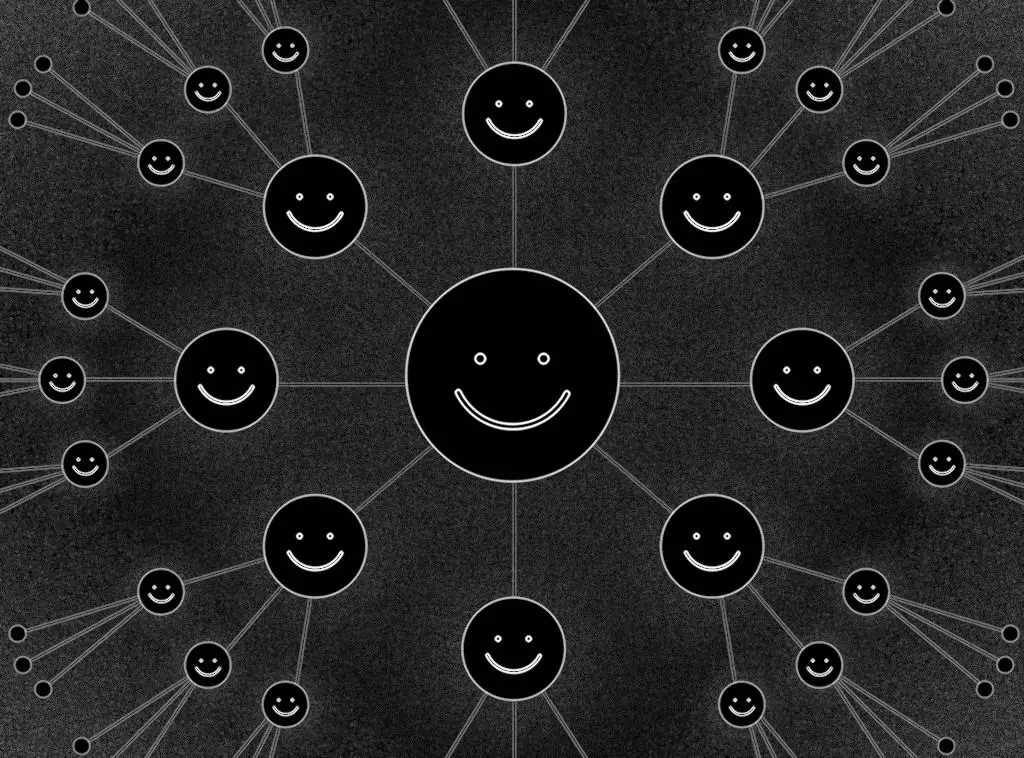What is an attitude? It’s your mood right?
According to the Oxford dictionary, an attitude is your settled way of thinking or feeling about someone or something, which is typically reflected in a your behavior.
In other words, your attitude is your ‘vibe’.
Can you catch a bad attitude (or someone’s ‘bad vibe’) just like you would catch a cold? Turns out, yes.
A study, conducted by Dr. Allison L. Skinner and published by the Society for Personality and Social Psychology in 2019, found that people can catch attitudes from the people around them.
This has long been suspected, but now it’s been proven.
My first reaction was “yeah cool, so what”. But then I thought about the effect that a “contagions attitude” of a leader has.Whether it’s a CEO, political leader, or if you’re Michael Jordan leading the Chicago Bulls.
In this article we’ll look at what makes people’s attitudes (or ‘general vibe’) so contagious, and the immense effect human energy can have.
Let’s Dive In.
Are Attitudes Contagious?

Have you heard of the term “Emotional Contagion”? Probably not. I hadn’t either until I started researching attitudes.
The term ‘Emotional Contagion’ is defined by experts as the “spontaneous spread of emotions and related behaviors”. Dr. Timothy J. Legg says that this happens when you mimic, usually without conscious effort, the emotions and expressions of people around you.
Dr. Arthur S. Reber was the first American cognitive psychologist to mention ‘emotional contagion’ in 1985. Today, Dr. Maury Joseph, explains that, someone with depression might express their feelings through body language, tone of voice, and facial expressions and that “This can induce a similar emotional reaction in people who have more vulnerability to these cues,”.
Through social media, we’ve also learned that negative posts get more engagement and attract more negative comments. This re-enforces the fact, that attitudes can become infectious virtually as well (and at a large scale)
The Immense Effect Of Human Energy

Our attitudes and ‘vibes’ make up our “energy” which is a physical representations of our psychological construct.
In other words, our vibes reflect on the outside, the way we feel on the inside.
This also includes our sub-conscious and unconscious feelings which often are reflected in our attitudes or body-language with-out us even being aware of it.
We often reflect our inner-feeling non-verbally through body language and micro-expressions which represents our general “vibe”. Our vibe (positive or negative) can be consciously or unconsciously picked-up on and absorbed by others.
Throughout all of history, human energy has been as infectious as any disease. The Great Pyramids in Egypt, the rise of Hitler to power, and the internet in your pocket are all results of human energy and infectious attitudes, both positive and negative.
How Can a Negative Attitude Affect You ?
When you have a negative attitude towards life, you radiate negative energy. You can start to become unpleasant to yourself and the people around you. Negative attitudes affects how everyone around you feels. It affects your family, friends, colleagues, and even strangers you come across in your daily activities.
Sometimes (even often) our negative or insecure deep inner-feelings are so ‘emotionally burried’ that we are not-even-aware of how they are affecting our general vibe. This could be something as subtle as crossed arms and sunken shoulders, or something more obvious like a deep scowl.
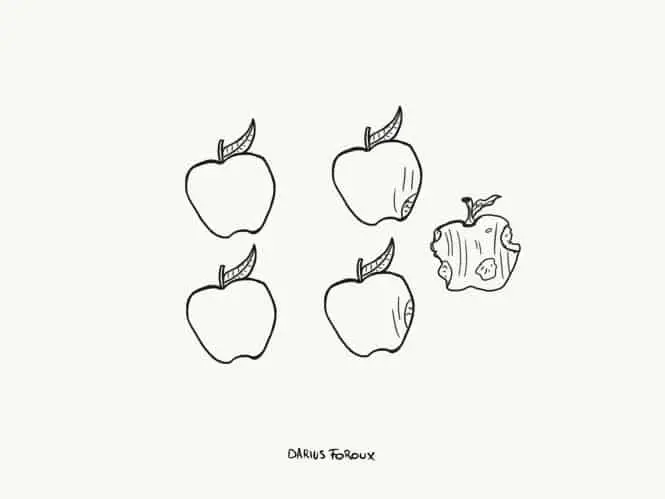
Non-verbal movements like these sub-consciously communicate to others our general “vibe” or attitude….Whether we’re aware of it or not.
Not only does a negative attitude effect you, and those around you, it goes deeper. The University of Minnesota has found that your attitude can affect your immune system, your creative ability, intelligence, and thinking ability.
But, it’s not only your health that could be affected by your negative vibes, your wallet too.
A 2016 study published in the ‘Journal of Personality and Social Psychology’ found that, based on evaluating income levels, and attitudes of people from all around the globe, researchers found cynical people earn, an average of $300 per month, less than their more positive counterparts.
I’m reminded of the saying that “one bad apple can spoil the rest”
How Can a Positive Attitude Affect You ?
According to Johns Hopkins Medicine
“it is clear that there is definitely a strong link between “positivity” and health.
Additional studies have found that a positive attitude improves outcomes and life satisfaction across a spectrum of conditions—including traumatic brain injury, stroke and brain tumors.”
The team of medical experts at Mayo-Clinic also agree on the benefits of having a positive attitude, which include:
- Increased life span
- Lower rates of depression
- Lower levels of distress
- Greater resistance to the common cold
- Better psychological and physical well-being
- Better cardiovascular health and reduced risk of death from cardiovascular disease
- Better coping skills during hardships and times of stress
What Emotions Are the Most Contagious?
In 1998, a study conducted by a team of psychology professionals, including neuro-scientist Dr. John Terrence Cacioppo, found that,
“Negative information tends to influence more strongly than comparably extreme positive information”.
In my opinion, this would make sense if you’re ever seen a negative “political attack ad”.
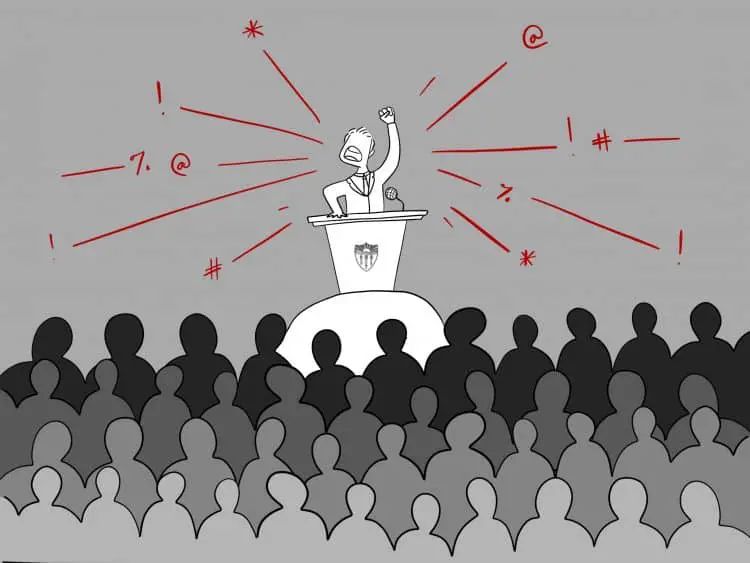
Dr. Cacioppo says that humans usually react more strongly to pain, fear, sadness, and disgust than to joy and serenity.
According to psychology experts, these findings make perfect logical sense.
For example, when our brains first evolved, if our ancient ancestors reacted more strongly towards the positive reward of food, vs. the danger of a predator, then he would have been less likely to survive and be able to reproduce.
“When both good and bad are very strong, the bad trumps,” Cacioppo says.
And he can even prove it. He recorded electrical activity in the brain and found that negative emotions showed stronger connections of brain activity.
Be Careful of Politicians ‘Intentional Negativity‘
Those who understand the power of negative energy and it’s ability to be spread can be dangerous people. Often political leaders spread messages of fear as a strategy to gain power.
Hitler used this strategy of spreading fear and negativity, very effectively, to gain control of Germany in the 1930’s and 1940’s.
According to more recent research from University of Oklahoma and the University of Texas at Austin, when individuals dislike the same people, or find a common dislike of something in general, all of a sudden a bond that is formed. This bond can be turned into a friendship or turned into political support.
Politicians often use this very same strategy to ‘attack’ their political opponents in an effort to focus the people’s attention on a common perceived threat. This often turns into a “Us vs. Them” situation like we are currently experiencing in the US today.
In my experience, I’d rather focus on positive solutions instead of negative problems. If you focus hard enough, there’s a creative solution for every problem.
Understand That Your Attitude Is A Choice

Sometimes it feels like life is “happing” TO you, instead of you making life happen. But in the end, ultimately it is up to you to choose whether-or-not to have a positive attitude.
In the words of Dr. Gregory L. Jantz, Ph.D., , a psychologist and the founding member of “The Center – A Place of HOPE” (an award-winning mental health treatment facility) –
“Life is not always easy, and sometimes we get handed a bushel of lemons. However, it is our own perspective that ultimately determines if we will drudge through life puckered and sour, or skip along with a glass of sweet lemonade.”
In the bigger picture context of all human life on planet Earth, not everyone who went to bed last night woke up this morning, and not everyone who woke up will go to bed tonight.
Life has no guarantees. It is up to you how you act and react to every moment, every situation, and every interaction you experience.
What Makes Attitudes Contagious?
A new study published by the National Academy of Sciences, suggests that our brains contain “Mirror Neurons” which according to the experts, “provide an important missing link” and hard science to the idea that attitudes can be contagious very similar to how disease can be contagious.
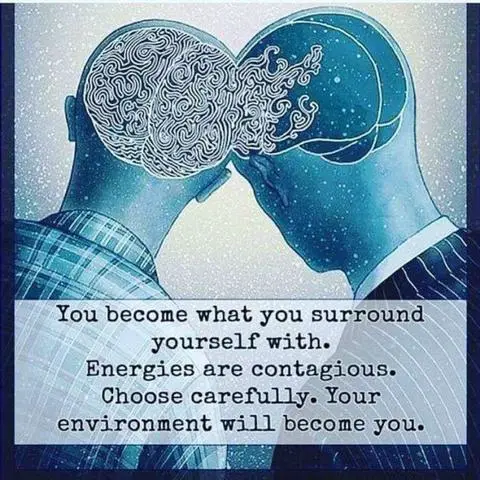
Professor Kerry Bowman believes that there’s an evolutionary reason as to why negative emotions are so contagious.
If there’s anger or fear within a group, community, or society, from an evolutionary perspective, it’s very important that people (or even non-human primates) are able to pick up that emotional change.
This ability to pick-up on vibes and emotions allows us to be ready to adapt to a change, or react to a predator.
We often reflect our feeling non-verbally through body language and micro-expressions by our general “vibe” which others can pick up on and absorb.
The reason attitudes are contagious is due to a chain reaction of emotional states.
Humans are emotional beings, and those of us who are consciously-aware of our own vibe may be able to read other peoples vibes better then they can themselves.
Professor Bowman agrees, saying that most people are not consciously aware of the changes they are going through with an “emotional contagion”, as these changes happen sub-consciously.
You may not be at all consciously-aware that your emotions are changing and being manipulated by another person.
As a positive example, if someone holds the door open for you, then you’re more likely to hold the door open for the next person. I’ve noticed this same pattern when letting someone into a line of traffic as well.
Your attitude affects how the people around you feel. It affects your family, friends, colleagues, and even strangers you come across in your daily activities.
Building Self Awareness Towards Other Peoples Energy (and intentions)
According to studies at Harvard, 95% of people think they’re self-aware, while in reality on 10-15% are actually self-aware.
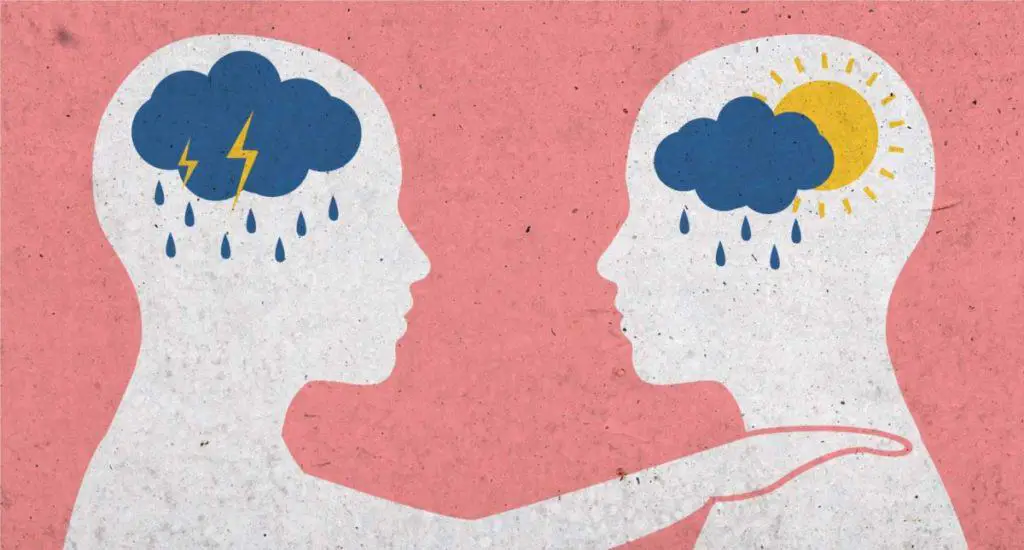
If you’re not self-aware then you’re an easy target to get either intentionally or unintentionally manipulated by the dominating negative energy and fear of others. Self-awareness is one of those things that has no limit.
You can always become more self-aware just like you can always become a little stronger. Some people devote their whole life to the practice of becoming more self-aware.
But one of the biggest and most common barriers blocking self-awareness is the human ego. Your ego can block your ability to see things clearly. And prevent you from understanding the effect that other peoples energy is really having on you.
As is evident, ego and self-awareness stand in contrast to each other. Your ego acts as a blindfold that prevents you from introspection and reflection. Without these, you can’t even begin to understand self-awareness.
Here’s some tips for becoming more aware of other peoples energy and loosing your ego.
- Ask For Feedback From Others With Different Perspectives
- Reflect On Your Own True Values
- Become a Good Listener And Practice
- Be Curious About Your Own Thoughts
- Spend Some Time Alone Every Day to Reflect
- Always Think Like A Beginner And Ask Questions
- Remind Yourself How Little You Are In The Context of the Bigger Picture
- Spend Time With People Who Are Both More, And Less Fortunate Than You
- Rise Above The “Self-Image Game”
Examples of The Effects of Contagious Attitudes and Energy
Attitudes, Energy, And Work Performance –
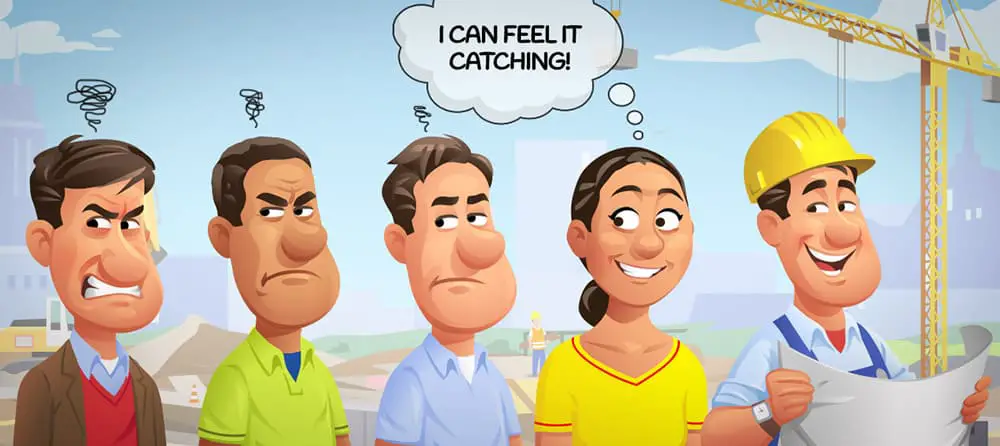
A study, published in the Journal of Motivation and Emotion, showed that even emotions that are less noticeable, such as motivation, are just as much contagious.
As an example, I found a study conducted in 2017 by Northwestern University, which found that just by sitting within 25 feet of a “”high performer”” at work, it improved an employee’s performance by an average of 15 percent.
on the ‘flip-side’, the study also found that by sitting within 25 feet of a “”low performer”” it hurt employees performance by 30 percent.
The Contagious Attitudes of Leaders –
Those who are leaders at any level (local churches, city Mayors, the President) have an obligation to set a positive influence and tone. The attitude of our leaders is contagious and has an enormous sub-conscious impact on those whom they represent.
An article published by Dr. Thomas Sy in ScienceDirect concluded that groups can fall victim to both an overly negative tone and an overly positive tone. This is called group complacency (AKA group-think).
Cult leaders have been known to use these same psychological tools to manipulate people. Jim Jones promised a positive utopia and manipulated his followers with false hope and false positivity. Ultimately this lead to the greatest mass suicide in human history.
Cult leader David Koresh used the fear of god to manipulate his following, while Hitler’s negative attitude towards Jews cultivated a common scapegoat for the loss of WWI in order to manipulate his following, the people of Germany.
Leaders understand the effects that emotions can have in manipulating people. Be wary as emotional manipulation of facts is often used as a trick by leaders to gain power.
Emotions Even Spread Virtually –
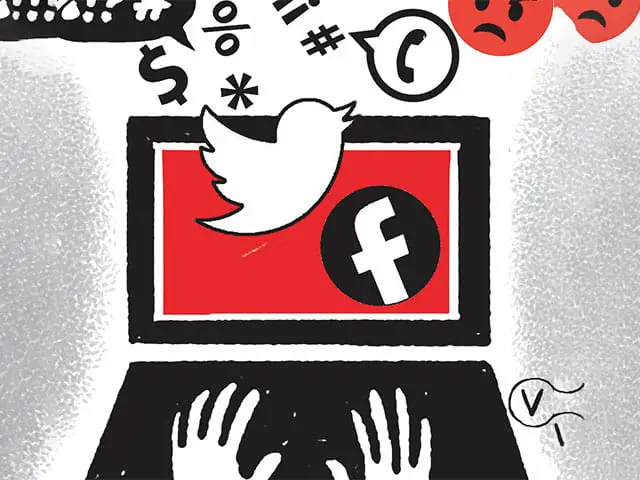
In society today, there’s a lot of uncertainty and stressful emotion. Coronavirus, political differences, and rapidly changing technology. But when so many people are feeling stress and anxiety it can make it difficult to escape the negativity, especially with the ever presence of social media.
According to the Harvard Business Review, “we automatically mimic other people’s facial expressions, body language, and tone of voice. What happens next is also “infectious”: Through a variety of physiological and neurological processes, we actually feel the emotions we mimicked.
This is important to be aware of because Social media platforms actually promote negative content because it creates more engagement.
(here’s some tips on how to use social media more consciously)
News outlets understand this concept as well, which is why negative headlines sell more than positive ones.
Conclusion
At the end of the day, we are all mirrors reflecting onto one another. But ultimately we all have the individual ability, power, and choice to set out own vibe, establish our own energy, and choose our own attitudes.
However, if you’re not aware of the effects that other people’s attitudes are having on you, then you could be making yourself vulnerable to sub-conscious and unconscious manipulation.
Hope you enjoyed this article. If you found it helpful, useful, or boring please let us know. Also if there’s any glaring mistakes or perspectives we missed, we’d love to hear it.
Loved what you read?
Hit that share button and let the world in on the secret – we’d be thrilled!
Got thoughts? We’re all ears for your feedback, corrections, or a good old chat. Don’t be shy; drop us a line.
And hey, don’t miss out on our curated list of must-reads in the recommended books section.
Big thanks for diving in with us today!


